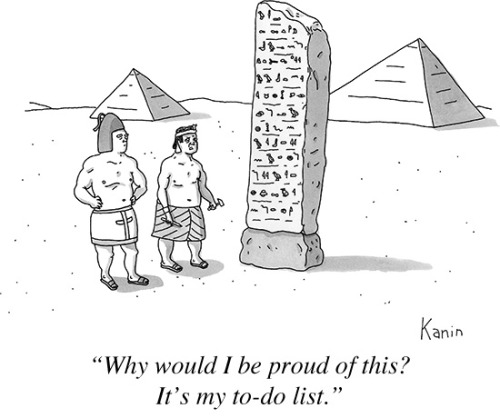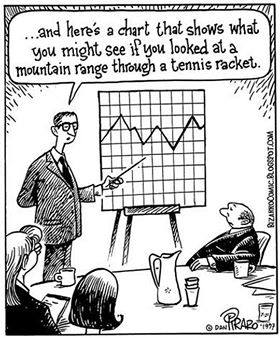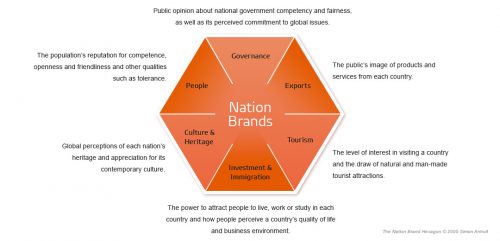Virgo 2016
As I write, the sign of Virgo is occupied by the Sun and also by Mercury, who is doing one of his back flips, a warning that communication can go awry for a couple of weeks. But these dwellers are relatively short-term inhabitants, whereas one occupant has been in our sign of the month for just over a year, and so has had more time to soak up the energy of this sign. Jupiter will leave Virgo on September 9th for his sojourn in Libra. So what has he been up to since August last year? What does Jupiter do? And what is Virgo good at?
Jupiter describes several areas of life: politics, international issues, philosophy, belief systems, laws, religion, higher learning and travel, to name a few. He is the biggest planet and is therefore associated with the big picture, and growth. He is Jove, where the word jovial comes from. Heavily accented in a personal horoscope, he can indicate a positive outlook on life. Like Sagittarius, Jupiter takes a risk and has an adventure.

Virgo, on the other hand, has a check-list to make sure everything has been organised. So it must be weird for Jupiter to be in Virgo – a sign associated with detail, service, practicality, and analysis. A worst-case combination with Jupiter might create a judgemental nit-picker – and we have seen plenty of those lately. However, like all strange cosmic combinations and dilemmas, they get worked out, and, as usual, I want to emphasise the good things about Jupiter in Virgo working together.

Earth or air
Virgo and Gemini are both signs that we say are ‘ruled’ by Mercury. To me they are both about information. Gemini, being an air sign, highlights the spreading of information in the form of communication – talking, networking and writing – whereas Virgo, being a practical earth sign, can represent information in the form of data or statistics. A few ways Jupiter in Virgo can work are:
- big data
- statistical overviews
- risk-taking geeks (like hackers)
- number-crunching for risk assessment
- sound judgement based on fact
- analysing and making use of patterns
- using data for political purposes
Lies, damn lies and statistics
This phrase, attributed by Mark Twain to Disraeli, seems to have no exact source. However it sums up the way data can be used. Here, I want to offer an example of how big, international data, used wisely, can be of service in this crazy world, rather than the way statistics are often used politically. We seem to have been trained by politicians, scientists and the media to be impressed by numbers, often in the form of percentages. This is one way of summarising data and it is understandable to us. However, as always in a political context, these numbers and percentages can be damn lies. Propaganda to get us to believe a particular view.

A case in point
Headline 4,783 cases of microcephaly in Brazil
If some articles on the net are to be believed (and I am coming around more and more to the view that information is often highly questionable), the Zika Virus is a scary case in point. Virgo has associations with health and the mind-body connection, so the politics of this and how we judge the data are very relevant at the moment.
An excerpt from an article on healthimpactnews.com on Zika (link to full article below) states, “After the initial shock and panic was produced, we learned that further investigation showed that the number of confirmed cases was only 483 (as opposed to 4,783). The mainstream media also didn’t mention that the number of babies born in the United States with microcephaly in a typical year is 25,000. When adjusting for population differences between the US and Brazil, we find that the rate of microcephaly in the US is actually 40 times higher than the rate in Brazil.”
For the love of numbers!
Cherry-picking or using made-up numbers has a great effect on what we believe! Virgo on a good day would do the analysis but most of us don’t. We believe the figures and, in the Zika case, feel for the families and see the fallout – for example people being afraid to travel to the Olympics – but we don’t get involved. The consequences are that government can follow their own agenda in dealing with a virus that has been around for years and has caused nothing more than flu-like symptoms. I wonder who profits from the propaganda. Drug companies? Chemical spray companies? It would appear that bees are now the victims of spraying to kill off Zika. Who knows if this is true? One of the downsides of Jupiter in Virgo has been an over-abundance of (often conflicting) information.

Country Image
One of the problems this Zika type of reporting creates is that it affects the way the world looks at Brazil – bad PR matters on the international stage. And it is this topic that made me think of one example of how Jupiter in Virgo is being used to (future) advantage, and how a small action from us may make a big difference. Jupiter is about marketing, and countries also need to market themselves. Among many other things, good PR for a country brings more investment, better deals and increased tourism. Having nice Virgo statistics can help.
Geeks to the rescue!
Self-confessed data geek, Simon Anholt, is someone whose work I really admire. In one of his numerous videos he states: “Well, we live in an age, I think, in which there’s really only one remaining superpower and that’s international public opinion. In one way or another, all of us, whether we’re corporates or governments, we are doing diplomacy with that superpower of international public opinion in its various forms – as the market, as tourists, as investors, as buyers, as choosers.”
Anholt has worked with governments and other institutions to help with what has become known as nation branding, although he is not keen on that term. He advises governments on managing their image, although he says the image of a country is difficult to influence. He has come to the view that monitoring opinions that countries hold of each other, provides statistics that can be used as a tool in making countries better. Public opinion does matter for all leaders. He has created two sources that already contain a massive amount of data.
Nation Brands Index
One is the Nation Brands Index. It measures the power and quality of each country’s brand image in six areas

This index captures the ‘feelings’ or perceptions associated with nations. In 2015 US came in at number 1 overall followed by Germany and the UK. In 2014 Germany topped the list but has gone back to being number 2. Press headlines and leaders decisions matter for this index.
The Good Country
The second one is the Good Country Index. Here’s where we come in. It was through his considerable research and dealing with world leaders, that Anholt came to the conclusion that international public opinion is a superpower. He decided we need to define what a good country is, so that we can make them ‘gooder’ – which is different from better. He researches things that can be measured and from that determines each country’s global contribution. Interestingly, the US currently stands at number 20 on this list. Sweden is at the top followed by Denmark, the Netherlands and the UK in 4th place. He stresses that the only way to solve world problems is together – no country can solve any global problem alone. To this end each leader must agree to a dual mandate – responsiblility for their own country, both people and territory, and also for the earth and everyone on it.
We are the other 700 million
It is clear to Anholt that many people appreciate ‘good’ countries. This measure is not meant as a moral judgement but as an index that shows how much a country contributes to global well-being. The measures are things like contributions to global technology, peace, the planet, climate, equality, health and culture. One of the ways to help what he calls “unfucking this planet”, is to join his Good Country Party, which he describes as a non-political, non-party.
Everyone can vote in any upcoming elections in the countries being monitored. As an example, on the Good Country website you can now vote for one of the four people in the upcoming US election (or no-one). These votes of course don’t count in the US, but the site will be used in the future to highlight what the rest of the world thinks of global leaders. According to his conservative estimate, there are at least 700 million people worldwide who think like he does – they want ‘gooder’ countries and change in leadership policies. He maintains these votes will have influence. I love the idea and have already voted in this election. The results of Brexit are on the site listed below. (Majority voted Remain.) This much (Jupiter) data (Virgo) and the way it will be used show the power of numbers when we band together. I wish this initiative all the best.

But what about Jupiter in Libra?
I always like to look back and learn from different time periods. However, of course astrology can look forward to the next phase when Jupiter will be in Libra for just over a year. Many astrologers are looking forward to this and I agree, as with all the signs there are many positives (as well as negatives which seems not to be of interest to many astrologers when it comes to lovely Libra!) The sign that Jupiter occupies suggests where we put our faith, what we believe in. While Jupiter was in Virgo, a belief in all the topics mentioned above, such as looking at fine print, being critical and using statistics came to the fore.
Jupiter in Libra suggests faith in negotiations and finding balance. More dialogue, more fairness and better laws. Open discussions and hopefully having faith that peace agreements might be reached. I know that’s a big ask in today’s world but if I had to choose a good time for at least talking about peace and harmony, I would choose this upcoming year. Libra is the sign of relationships and not only between countries. If yours need some ‘maintenance’, the coming year is a good time to do it.
Faye Blake-Cossar
Websites of the Month
The link for the full article on the Zika Virus
The videos below are both talks from Simon. One is a shorter than usual TED talk where he mentions “unfuck this planet!” The other is a great talk that he did for the Commonwealth meeting. It is a good summary of what he is attempting and also shows how useful old Commonwealth ties could be.
Quotes of the month
“In the past, leaders had a simple, single mandate: to do the best for their own people and their own slice of territory – frequently at the expense of people in other territories. In the age of global threats and opportunities, they must accept a Dual Mandate:
Today, leaders must realise that they’re responsible not only for their own people, but for every man, woman, child and animal on the planet; not just responsible for their own slice of territory, but for every square inch of the earth’s surface and the atmosphere above it.”
From Simon Anholt’s website – The Good Country













Comments 2
Good post Faye. The nice thing about Simon is that on TED he appears to answer everyone who posts a comment. In other words he cares enough about what people say and think to react and consider.
Author
Thanks Rosie – yes – nice that he does that.